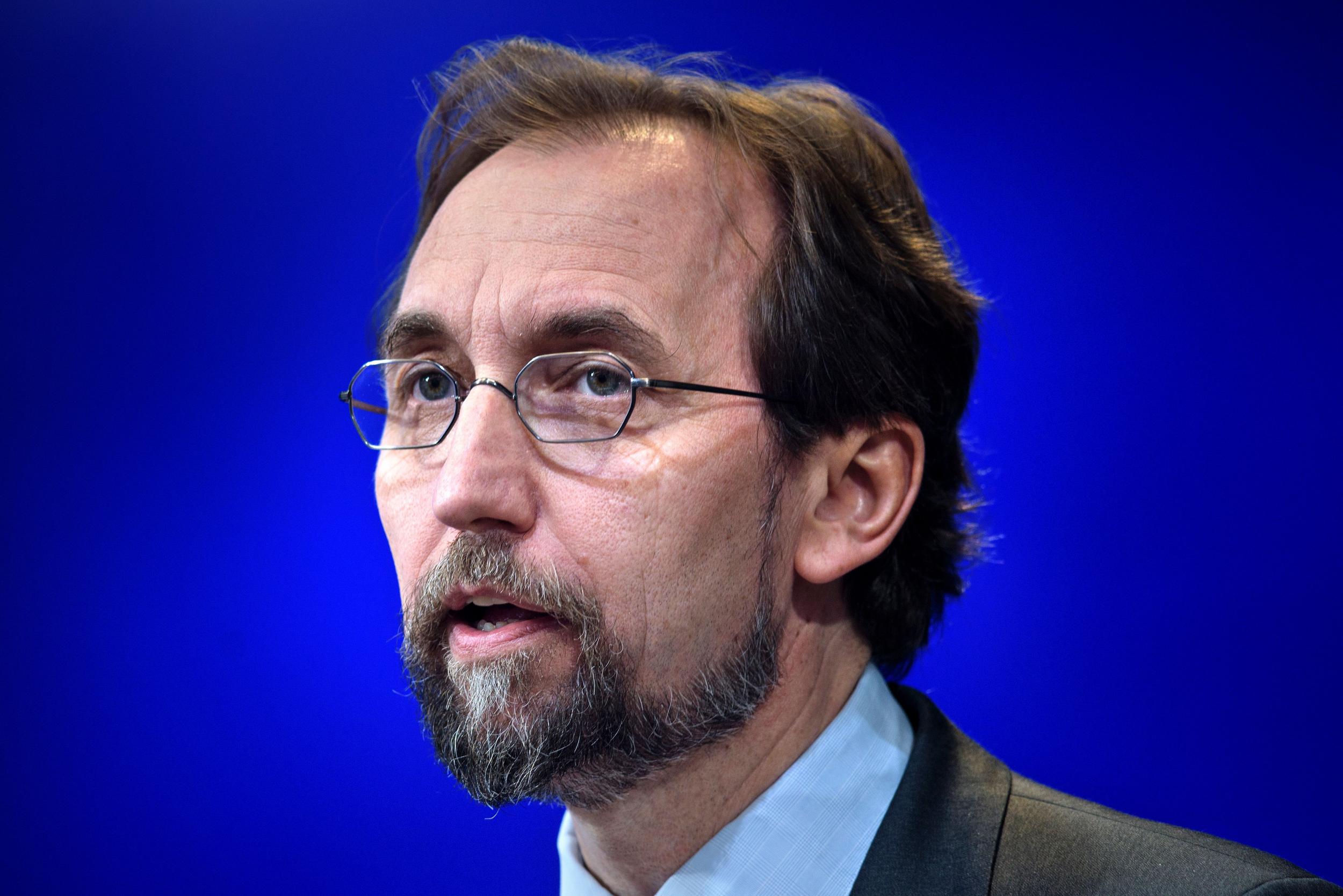Your support helps us to tell the story
From reproductive rights to climate change to Big Tech, The Independent is on the ground when the story is developing. Whether it's investigating the financials of Elon Musk's pro-Trump PAC or producing our latest documentary, 'The A Word', which shines a light on the American women fighting for reproductive rights, we know how important it is to parse out the facts from the messaging.
At such a critical moment in US history, we need reporters on the ground. Your donation allows us to keep sending journalists to speak to both sides of the story.
The Independent is trusted by Americans across the entire political spectrum. And unlike many other quality news outlets, we choose not to lock Americans out of our reporting and analysis with paywalls. We believe quality journalism should be available to everyone, paid for by those who can afford it.
Your support makes all the difference.The UN’s highest authority on human rights has hit out at the Syrian government for refusing to let observers monitor the country’s civil war.
Zeid Ra'ad Al Hussein, the United Nations High Commissioner for Human Rights opened the 33rd sitting of the UN Human Rights Council on Tuesday by naming and shaming countries that he said had refused to open themselves up to international scrutiny.
His greatest criticism was reserved for Bashar Al-Assad’s Syrian government, who had said had tried to evade independent scrutiny despite repeatedly filing allegations about other parties in the civil war.
“Syria, despite repeated requests, has granted no access to OHCHR (Office of the High Commissioner of Human Rights) or to the Commission of Inquiry since the crisis began in 2011,” the commissioner said in his opening speech.
“This is a state led by a medical doctor and yet is believed to have gassed its own people; has attacked hospitals and bombed civilian neighbourhoods with indiscriminate explosive weapons; and maintains tens of thousands of detainees in inhuman conditions.
“Words cannot convey how profoundly I condemn this situation. The Government, which is responsible for some of the gravest violations on record in the history of this Council, has regularly sent notes verbales to my Office reporting abuses by armed groups. But it offers no possibility whatsoever for independent scrutiny.”

Other countries singled out by the Commissioner included Venezuela, which Mr Al Hussein said had denied visas for UN teams, Turkey, which he said had blocked access to the Kurdish south east, and Israel, which has “a long record of refusing to cooperate” with mandates for the UN to access the Occupied Palestinian Territories.
Bahrain was criticised for “harassment and arrests of human rights defenders and political activists”, while the Philippines’s new president Rodrigo Duterte was rapped for his new war on drugs that has seen thousands of people summarily shot on sight without any judicial process.
The United States was criticised for "evasive tactics" on the pleged closure of the Guantanamo Bay prison camp, while North Korea was accused of refusing to engage on the specifics of a visit despite ostensibly extending an invitation.
Countries that were praised for providing access to the UN include the Republic of Congo and Yemen, despite allegations of serious violations in both.
Britain, the US and their allies have reached an ambiguous relationship with Mr Assad’s government in recent months. The UK came close to bombing Mr Assad’s ground forces in 2013 – refraining only after the Government lost a parliamentary vote.
Britain is now bombing Isis, which is fighting against Mr Assad, but is not actively supporting Syrian government forces – nor bombing them. Former Foreign Secretary Philip Hammond previously repeatedly stated that Mr Assad had to leave office for a peaceful solution to the conflict. However, the new Foreign Secretary Boris Johnson, has previously called for the UK to work with the Syrian regime.
A joint investigation by The Independent and Campaign Against the Arms Trade published earlier this month found that in 2010 Britain had sold arms to 39 of the 51 countries ranked as “not free” on the Freedom House Freedom in the World Report, and 22 of the 30 countries on the UK Government’s own human rights watch list.
A full two-thirds of UK weapons over this period were sold to Middle Eastern countries.

Join our commenting forum
Join thought-provoking conversations, follow other Independent readers and see their replies
Comments